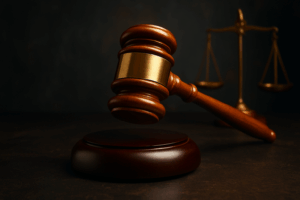Harvard University received a temporary reprieve from the Trump administration's effort to revoke its certification for enrolling international students. The Department of Homeland Security's recent decision allows Harvard 30 days to affirm its compliance with the Student and Exchange Visitor Programme (SEVP). After an initial revocation notice in May, Harvard swiftly filed a lawsuit, leading US District Judge Allison Burroughs to grant a temporary restraining order that could lead to a long-term hold, preserving the university's international programs as litigation unfolds. The case raises critical questions about the government's authority to influence university curricula and the implications of ideology-driven actions against academic institutions. Legal experts caution that while the Trump administration may encounter constitutional challenges related to free speech, there are complex factors at play that could still favor government decisions.
Judge Pauses Trump Administration's Move to Limit International Students at Harvard

Judge Pauses Trump Administration's Move to Limit International Students at Harvard
In a significant ruling, a federal judge temporarily halts the Trump's administration's plan to revoke Harvard's ability to enroll foreign students, as the university pledges to contest the government's claims.
Amidst a backdrop of political tension over academic freedom, Harvard seeks to defend its rights against what it views as retaliation for its stance on various ideological matters. The evolving situation is setting a crucial precedent regarding the intersection of educational autonomy and government control, with implications extending beyond Harvard to universities across the nation.




















